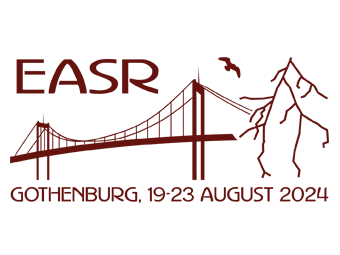Mehr Informationen finden Sie hier: https://easr2024.se/
"We have a responsibility greater than ourselves": Christian responses to challenging times in India, Iliyana Angelova,
The past few years have posed unprecedented challenges to our ways of life: few can now deny the increasingly serious impact of climate change on the planet and the potential irreversibility of a catastrophe of global proportions while the Covid pandemic has transformed the ways in which we think about our social life and community-building. Religious communities have had various ways in which they have attempted to deal with these challenges and with the ever-salient question of what it means to be Christian in a globalized world which finds itself in multiple crises.
With an ethnographic focus on Baptist Christian communities in the state of Nagaland in Northeast India, this paper seeks to elucidate theological and personal responses to some of these global crises and challenges, such as climate change, environmental degradation and the destruction of ecosystems, against the backdrop of culturally specific local understandings of land as co-constitutive of humans and Christian theological understandings of human guardianship over land on behalf of God. More specifically, the paper will focus on the role of Naga pastors in initiating and sustaining environmentally-friendly and sustainable farming projects among their congregations which rely on better technologies and planning – and the ways in which congregants have responded to such initiatives and projects. A special analytical emphasis will be placed on explaining what motivations drive such projects at the grassroots level among Naga Christians and how intergenerational exchanges of indigenous and scientific agricultural knowledge help empower local communities to cope better with the challenges of climate change and the destruction of habitats and ecosystems.
The paper will argue that the best way to understand community responses to issues of climate change and environmental degradation among the Naga is to ground them both in culturally significant understandings of human-land relationship as well as in understandings of Christian responsibility, which extend beyond one’s own salvation and the salvation of others towards saving the whole planet at a time of multiple ongoing global crises.
Climate Change, Anti-Atheism, and (the lack of) Human Agency, Petra Klug
Anti-atheism has long been a cornerstone of American religious identity, intricately woven into the fabric of our language, propagated through religious texts, and solidified in legislation. This entrenched aversion against atheism has resulted in exclusion, discrimination, and violence against atheists.
However, the implications of anti-atheism extend far beyond the treatment of atheists as a marginalized group. It also raises profound questions about societal change and how humans view themselves within such transformations. The discourse surrounding climate change sheds light on these challenges in several crucial ways:
1.
Science Denial: Echoing historical dismissals of scientific discoveries that contest religious doctrines—such as the theory of evolution—some individuals refute the existence
of climate change. This denial is often reinforced by conspiracy theories that frame atheists
and secularists as orchestrating the climate change narrative as a hoax, aiming to manipulate society and ultimately form a world government.
2.
Scapegoating: When climate change is acknowledged, it raises the question of accountability. Propelled by the theodicy dilemma and the concept of a divine covenant, atheists have historically been scapegoated. Some religious leaders assign blame for all kinds of catastrophes to those who have breached this covenant by disregarding divine injunctions or questioning God’s existence. This narrative depicts atheists as detractors of a divinely sanctioned social order, with climate change portrayed as divine retribution for sins such as the secularization of public life and education, as well as abortion, homosexuality, and gender equality.
3.
Question of Response: Importantly, climate change underscores the issue of agency. By framing it as a moral failing rather than a collective emergency necessitating action, anti-atheism also impedes proactive measures. In contrast, atheism highlights the significance of human agency, emphasizing our capacity and responsibility to tackle issues like climate change. This viewpoint advocates for a transition from passive hopes and prayers to active involvement with the underlying causes and viable solutions.
Climate change will deepen societal and global divisions, potentially exacerbating both structural and immediate forms of violence. Whether and how this violence can be averted depends on the societal response. The study of religion as a discipline must point out connections between religion and climate change to the fullest extent of our understanding. My presentation outlines some of these issues, offers examples, and provides empirical evidence, building upon the themes explored in my book, "Anti-Atheist Nation: Religion and Secularism in the United States," Routledge 2023.


